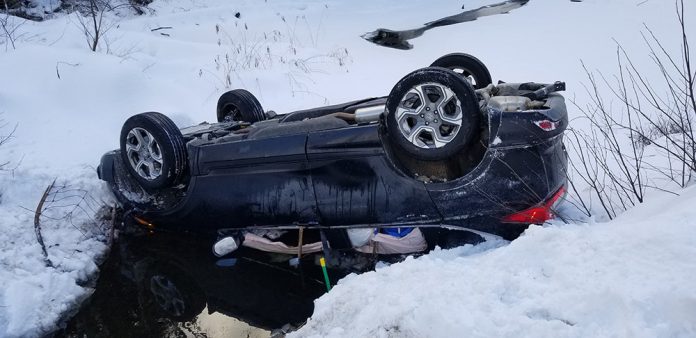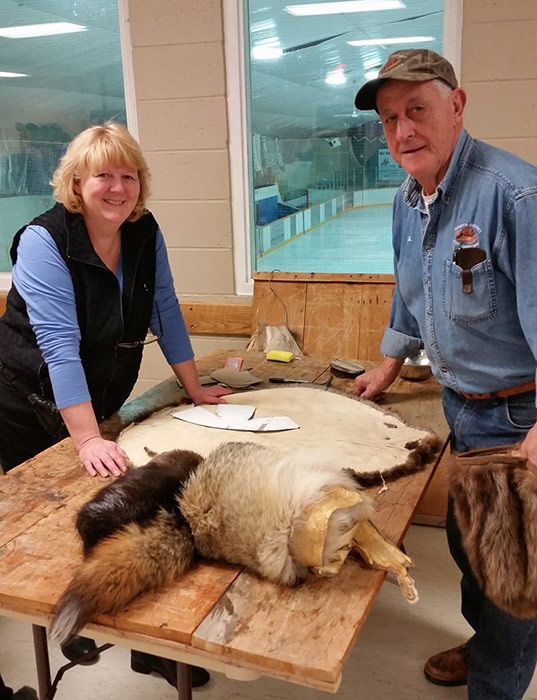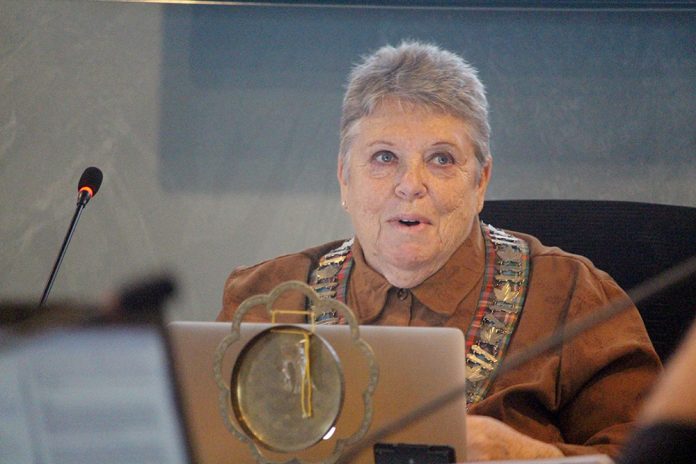Janis and Joe Blimkie are thankful for the help of Good Samaritans and emergency responders after escaping from their wrecked vehicle Jan. 6.
The pair’s vehicle was totalled after skidding on ice on a tight bend on Barry Line Road, Joe Blimkie said. The vehicle fell into a ditch and rolled, ending up upside down in a pond while water started to fill it.
Blimkie said they could not recall the rolling, only a rough bump as the vehicle fell into the ditch.
“Next thing we knew, we were upside down inside the car. Neither of us were panicked,” he said. “We knew where we were, we knew we were probably in water.”
The two found themselves in a difficult position, with airbags deployed and little light getting inside. Blimkie said he was on his back, the steering wheel above him, with his leg wedged up underneath it. The car’s emergency alarm system was not able to connect to make a call, Blimkie said, nor could he connect as he used his cellphone.
With the water engulfing him up to his chin, Blimkie said he began to worry.
“Started to panic then, thinking how long we’re going to be here,” Blimkie said. “There was no one else on the road.”
Fortunately, a metal pole from a wire fence punctured through the window of the vehicle on the passenger side, allowing Janis Blimkie to climb out of the vehicle.
“It was a real comfort to see her get out. When she got out she was standing up to her waist in water and then she assisted me,” he said. “I was able to twist my body around and go over into the other side.”
Teresa and Darren Johnston came upon them about two-to-three minutes after the crash, and Blimkie said they took quick action. They called 9-1-1, provided warm blankets, called neighbours for assistance and then drove couple to their home to warm up.
“We were unbelievably grateful. We would have been there 20 minutes, half-an-hour, depending on who is going to use that road that afternoon,” Blimkie said.
The cold of the water only set in after they exited, he said.
“I didn’t feel the cold when I was in the car lying in the water. It was when I got out that I really started shaking like I had never shaken before,” Blimkie said.
Emergency responders arrived on scene, including firefighters, OPP and EMS, Blimkie said. They were checked for injuries, but there was nothing major noticed at first, although they experienced bruising after a couple of days.
“Thank goodness, when you see the pictures of the car, it’s unbelievable that no one really got hurt,” he said.
The Hamilton couple, who were visiting their cottage in the Haliburton area, were able to rent a car to get back home.
Blimkie said they are grateful for all the people who helped them in their hour of need.
“Very, very, lucky, extremely lucky,” he said. “Thankful to the people up there that helped us out because they were a godsend to us.”










